Last updated: December 31, 2022
I put a lot of time and effort into my new three-year-old filly, and I thought she would do really well. But so far this year, we’ve had only fifth-place finishes at races. Maybe it’s just not meant for us, or perhaps switching jockeys will help improve her performance.
The jockey is an integral part of any winning race. They direct their mounts’ speed and tactics to help them win, like pushing up on a turn or moving inside for an early lead in races when setting the pace is important; jockey skill can make all difference between success (or not!)
The difference between winning and losing is often a split second. And many factors go into determining which horse will be victorious on race day, but how do jockeys rank among them? We will soon find out I got a top jockey to ride our horse next week.
How Much Does a Jockey Affect the Outcome of a Race?
One of the most common questions any beginner to the world of horse racing has is: which one plays a more crucial role in racing: the horse or the jockey?

There is no straightforward answer here; the horse and the jockey are essential. Most experts agree that you can’t win without a good horse, but you need to have the right jockey is critical to winning a race.
Jockeys are incredibly important in a horse race. A horse’s ability to win often lies in its jockey; they control how fast it comes out of the gates, sets the pace, or conserves its energy for a late push.
A jockey directs the horse, but that isn’t all they do. Jockeys use a unique riding style that helps a horse run faster and apply strategy during races, study their competition and learn the weaknesses and strengths of their competitors.
They combine these tactics during a race to cross the finish line first. It is no wonder that becoming a jockey requires commitment, dedication, and fierce motivation, in addition to excellent horsemanship skills.
It takes nerves of steel to ride a horse traveling over thirty miles an hour on a tiny strip of leather.
Here is a table with information about how a jockey can affect the outcome of a horse race:
| Factor | Description |
|---|---|
| Positioning | Choosing the best position for the horse during the race, considering factors such as the horse’s speed, stamina, and track conditions. |
| Tactics | Deciding on the best tactics for the horse during the race, including when to make a move, when to hold back, and when to conserve energy. |
| Riding style | A jockey’s riding style can impact a horse’s performance, and a jockey who is skilled at reading a race and adapting their style to the needs of the horse can improve its chances of success. |
| Conditioning | A jockey’s physical condition is important, as they must be able to control and guide the horse effectively during the race. A jockey who is in good physical condition will be better able to ride the horse to its full potential. |
Is the Jockey More Important Than the Horse?
A good horse could still end up in last place if a mediocre jockey rides it. On the other hand, a good jockey can get the most out of an average racehorse and beat more talented horses.
One thing is for sure: for a horse to be successful in a race, you need to have a competent jockey on board. Experts like trainer Max Hirsch and NY stockbroker John V Bouvier III have even assigned percentages to depict the importance of horses and riders. (They have contradictory opinions on this subject, though).
Bouvier believes that a good jockey is worth 75% of the race in an average horse race, whereas the horse is 25% of the race. On the other hand, Hirsch believes that jockeys amount to 25% of the race.
Mrs. Arden Brake, an owner of a racing stable in Miami, Florida, firmly believes that a jockey isn’t too important. Sure, a jockey needs to have sound judgment, but that’s all.
Says she: If you keep all other parameters the same, any good jockey can move a horse up by a head in a race. But to move the entire length ahead in the race is entirely up to the horse. For Mrs. Brake, a jockey doesn’t affect the outcome when a great racehorse is running.
I disagree with Mrs. Brake; a bad jockey can put a good horse in a bad spot in a race and greatly reduce its chance of winning.
Bottom line: Both horses and jockeys are essential, but opinions vary when answering, which plays a more crucial role in a race. What about the post position? How does it affect a horse’s chance of winning?

What Skills Do You Need to Become a Jockey?
Jockeys need years of training and hard work before participating in races.
Training begins in childhood.
Many successful jockeys are often the children of successful horse trainers and other winning jockeys because they have a lifetime of learning about riding and racing.
In fact, most top jockeys begin their training in childhood – sometimes as young as four years old. While other kids are busy playing games and preparing for their school tests, a serious jockey will be mucking stalls and brushing or feeding horses.
A good jockey will read everything they can get their hands on to learn about horses. They know about horse training, grooming, feeding, and breeding. They are well-versed in horse anatomy, having spent hours grooming and brushing them.
More importantly, jockeys study their competition, know if a whip is needed, and recognize how a race is unfolding to gain an advantage for their horse. All these can help them tremendously during the race.
Physical fitness
Peak physical fitness is crucial for jockeys. They maintain their weight between 108 and 118 lb., which requires working out in the gym, running, and eating sparsely. Their height is between 4’10” and 5’6”.
Jockeys also follow a strict diet to ensure they do not gain weight. Before the race, some have to take lengthy steam saunas to reduce their weight. (I wrote an informative guide about the size of horse jockeys that goes into greater detail.)
Sometimes, jockeys struggle to maintain their weight in the accepted range, leading them only to eat one meal a day and, in extreme cases, vomiting after meals. These practices can take a tremendous toll on their bodies and lead to severe health issues.
If you look at a jockey without clothes on, you won’t find an ounce of fat on their body. Jockey training boot camps are not for the faint of heart. Some require jockeys to train 2-3 hours a day, often cycling for 150 miles a week and participating in boxing.
Squats, push-ups, pull-ups, standing on wobbly cushions, and performing long planks are other exercises jockeys use to develop overall strength, balance, and stability. Jockeys have to focus on upper body strength, legs, lower body, and core to ensure that they can control a horse while it’s running fast.
On race day, jockeys work even harder to prepare themselves and their horses for the event. They often ride multiple horses on race day, know each horse’s strengths and weaknesses, and meet with trainers to discuss strategy.
Top jockeys often participate in over a thousand race events annually; some race five times or more in a single day.

Harsh working environments
Depending on the jockey’s status and specializations, many work under harsh conditions, at least initially. While training, they have to perform laborious tasks such as cleaning the stalls, grooming horses, and working for hours in stables.
Some even sleep in the barn. Horse racing jockeys are used to working in muddy conditions and racing irrespective of the weather and enduring heat, rain, and snow.
During meets, race tracks are only available in the early morning hours for workouts, and they often require training completed by 10 am on race day. Therefore, jockeys must get up at 3 or 4 am to train and prep their horses.
Balance, stability, strength, and stamina
Jockeys need immense upper body and core strength, stability, balance, and endurance. Don’t forget that racehorses often hit speeds over 35 mph, so jockeys need the physical strength and quickness to stay on their back while also guiding it.
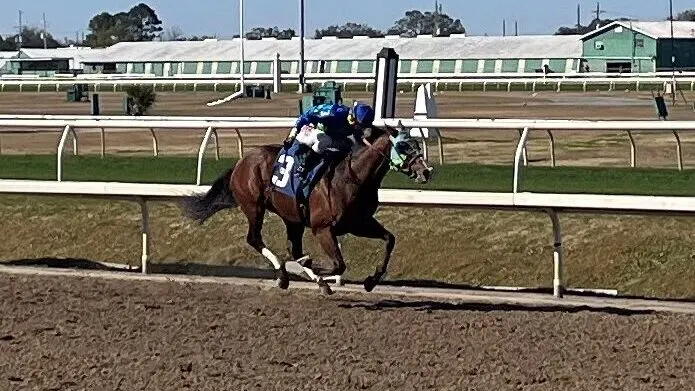
Do Jockeys Get Tired During Races?
The more you sweat during peace, the less you bleed in war. This adage applies even more to jockeys who have to undergo a strict regimen for training, as seen above.
Good jockeys train for years to ensure that they won’t get tired during the races. The hours they spend in the gym ensure that they can crouch in the saddle without developing a sore back or joints during the race.
Jockey boot camps also use equipment like Equisizer that emulate real-life horses, complete with the bucking and abrupt backward-forward movements. This exercise helps jockeys develop optimum balance and stability needed for racing.
Jockeys also use yoga and other balancing exercises that help them develop stability, stamina, and balance in the saddle. This practice can go a long way in preventing fatigue.
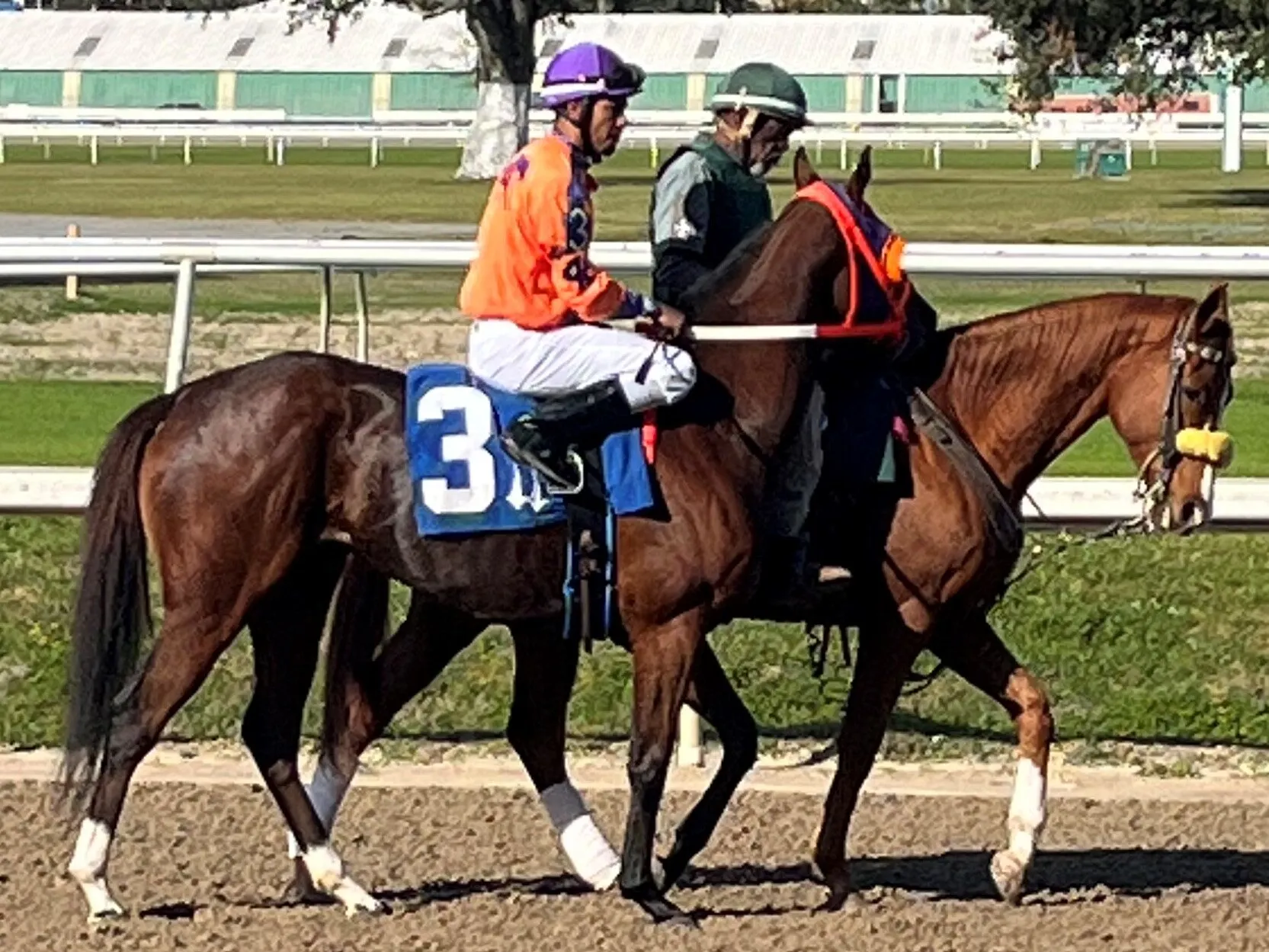
What Risks Do Jockeys Face During a Race?
Jockeys’ biggest risk is falling off their horse during a race; when that happens, they often sustain serious and sometimes life-threatening injuries.
Musculoskeletal injuries
According to the CDC, fractures, concussions, soft tissue injuries, and dislocations are the most common jockey injuries. A survey conducted on more than 1000 jockeys showed that almost 64% of jockeys suffered fractures at some point in their careers.
The most common fracture sites are the legs, arms, and shoulders. Severe head and spinal cord injuries are also a significant risk. Since 1950, almost 100 jockeys have been killed during official horse races.
Horse racing involves continuous acceleration and deceleration. The sudden stopping and starting action, jerky movements, and constant leaning-forward position can take a toll on the jockey’s back and joints.
Horse-related injuries
Getting kicked by a horse is common in a jockey’s life. Several jockey deaths are reported from being kicked in the chest or the head by a horse.
Jockeys ride in a forced forward-leaning position and get propelled by sudden acceleration/deceleration, resulting in sudden contact with the horse’s head or a stumble by a horse. A study showed that many fatal concussions and injuries occur from striking or being struck by a horse’s head.
Injuries can occur before, during, and after a race.
The race is not the only time that a jockey is at risk. Injuries can even occur at the gate: hitting the gate or rail. Poor track conditions can also cause serious injuries. A recent study indicated 35% of injuries occurred at the start of a race, 14% of injuries occurred during turns, and 16% during the home stretch or near the finish line. A similar study in Great Britain showed that almost 30% of jockey injuries occurred before or after the race.
Poor eating habits and related health issues
Since jockeys have to maintain their weight, many develop poor eating habits and disorders like bulimia. Some use vomiting, laxatives, and smoking to curb appetite. Excess use of saunas and hot baths also becomes an addiction. Many use diet pills or exercise excessively to maintain low body weights.
All this can take a toll on their mental and physical health. Many jockeys are known to suffer from the following health issues:
- Irregular menstrual cycles
- Poor dental health
- Dehydration
- Low bone density.
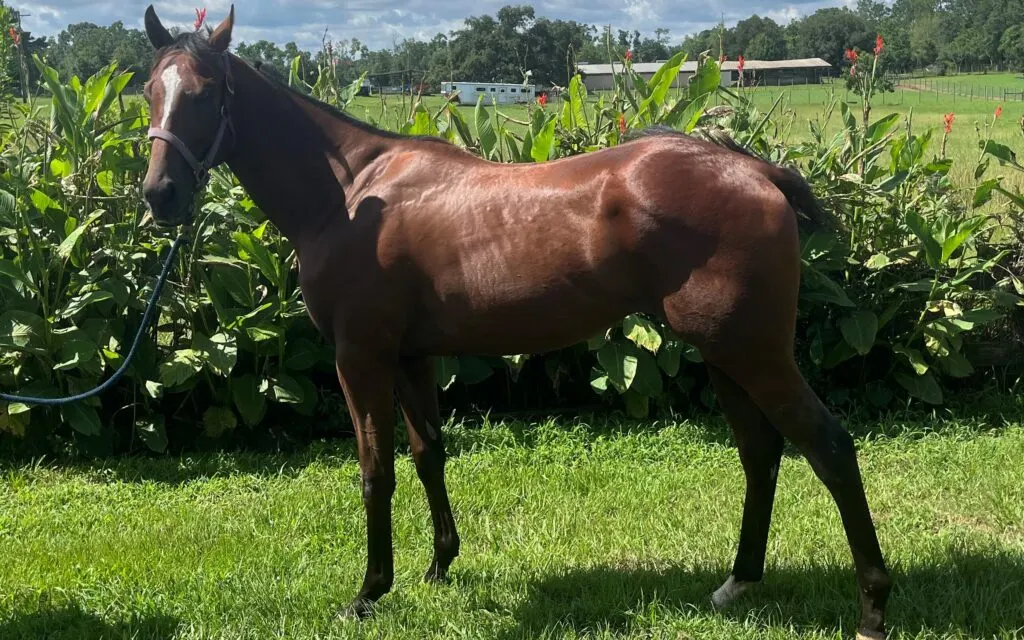
Can a Horse Win without a Jockey?
In the 2019 Preakness Stakes, a thoroughbred named Bodexpress unseated his jockey, J. Velaquez, ending up in the last position.
The rules and regulations of most horse races are that a horse cannot race without a jockey. The rules also clearly state that the horse must carry the total weight for the entire race distance that it was designated to carry.
The exception to this is the Palio in Siena, which is the only race in the world where a riderless horse can be crowned the winner (or allowed to keep its position) even if it is riderless.
A jockey is needed to ensure fair play throughout the race. Jockeys are even more essential in certain forms of horseracing (such as Flat racing, Steeplechase, and Harness racing). These races require jockeys to perform different tasks.
For example, in Flat Racing, the jockey is responsible for reining the horse to ensure safety. Similarly, in Steeplechase, the jockey ensures that the horse leaps over the jumps and does not avoid them.
A jockey is very important to control the horse and ensure that it does not frighten or panic during a race.
What happens if a Jockey is de-seated during a race?
A horse is disqualified when the jockey is thrown off. It won’t be considered a winner even if he crosses the finish line first. The exception is, as stated earlier, the Palio horse race in Siena.
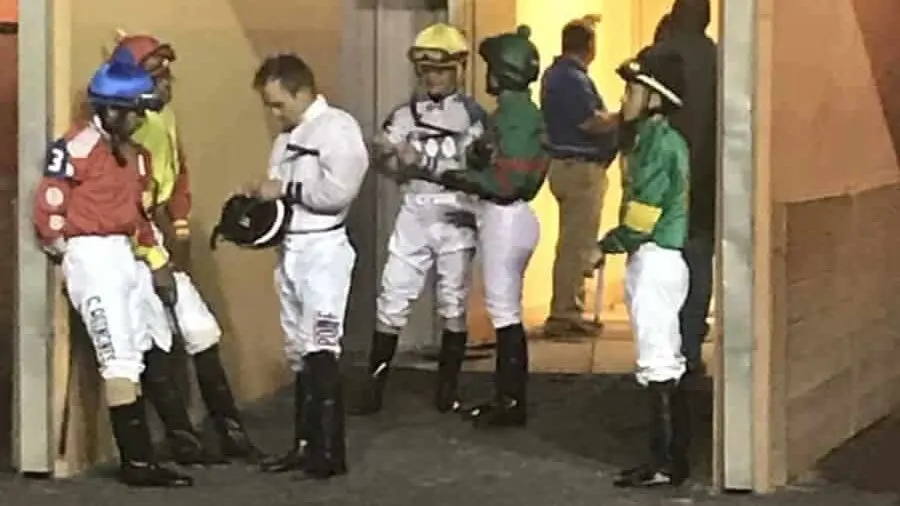
How Much Do Jockeys Earn?
A winning jockey makes more money than the losing ones, but most make only 10% of the 60% of the winning purse. To explain the math: if the winning purse is $10,000, then the owner makes $6000 while the jockey only makes $600. Also, the jockey does not get to keep all of this money – they have to pay their agent, valet, etc.
Jockeys used to be paid a flat fee assigned to the final position. For example, a jockey coming in second place would make around $550, while the one in third place would make $450, and those in any other position after that would make $350 each.
Today jockeys earn a percentage of the purse money earned in the race. Because they get paid for results, the best jockeys often choose to ride the horse they think has the best opportunity to win the race.
If a jockey performs well, they are sought after and participate in races with bigger purses. That is where the money is.

Key Takeaways- How Much Difference Does a Jockey Make in Horse Racing?
The horse and the jockey may be two different individuals at the gate, but they function as one unit once the race starts. Both the horse and the jockey are critical to a race. A winning horse needs a jockey to direct and control him. For this reason, the rules of most horse races disqualify the horses that un-seat their jockeys.
Although jockeys are dressed in white pants and flashy silk shirts on race day, being a jockey is not easy: there are grueling gym sessions, strict diets, and years of training. Jockeys begin their day at the crack of dawn, often working long hours in training, feeding, and grooming their horses.
Before a race, they have to ensure they stick within the stipulated weight limit, for which they subject themselves to strict diets and exercise sessions.
Jockeys are also at risk of serious injury: fractures, soft tissue injuries, and back problems. They could even die before, during, or after a race from head trauma or from being kicked by a horse in the chest.
Despite this, jockeys are not well paid as they only get a small percentage of the wins. They even have to pay their valets and agents.
Below is a YouTube video explaining how jockeys are chosen for a race.
Meet Miles Henry
An avid equestrian and seasoned racehorse owner, Miles Henry brings his extensive experience to the equine world, proudly associating with the AQHA, The Jockey Club, and various other equine organizations. Beyond the racetrack, Miles is an accomplished author, having published various books about horses, and is a recognized authority in the field, with his work cited in multiple publications.
🔗 Connect with Miles:
Twitter
Facebook
YouTube: Check out race highlights, horse care tips, and more!

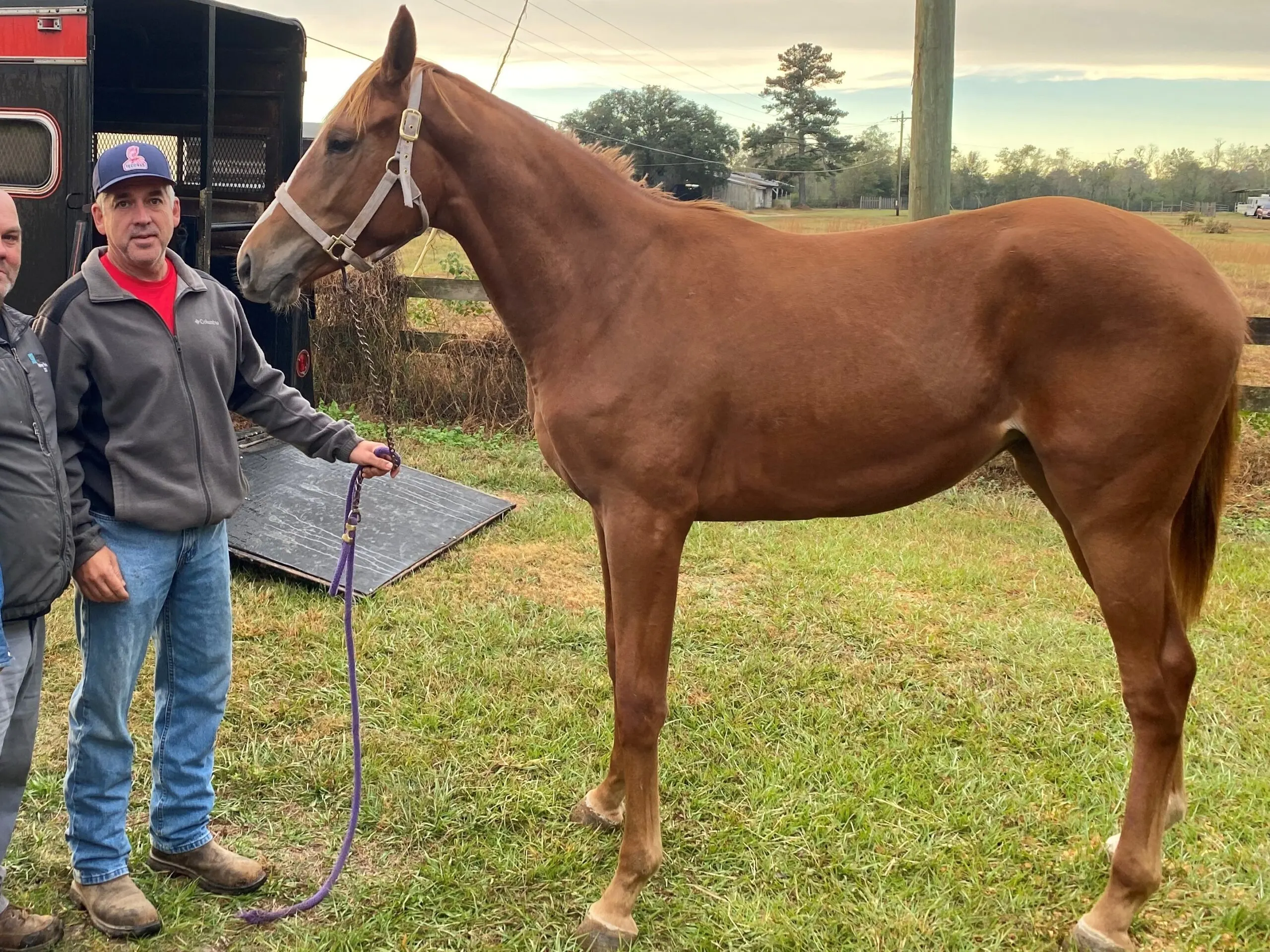
Dan
Friday 21st of January 2022
Great article. Thanks very much. AAA***
Bil Bradley
Saturday 22nd of January 2022
Glad you enjoyed the article.
Mary
Friday 21st of January 2022
Nice article - but is “reining in” not reign. Reins attach to the bit. Kings and queens reign over their country.
Bil Bradley
Saturday 22nd of January 2022
Thanks for pointing this out to me. I corrected my error.